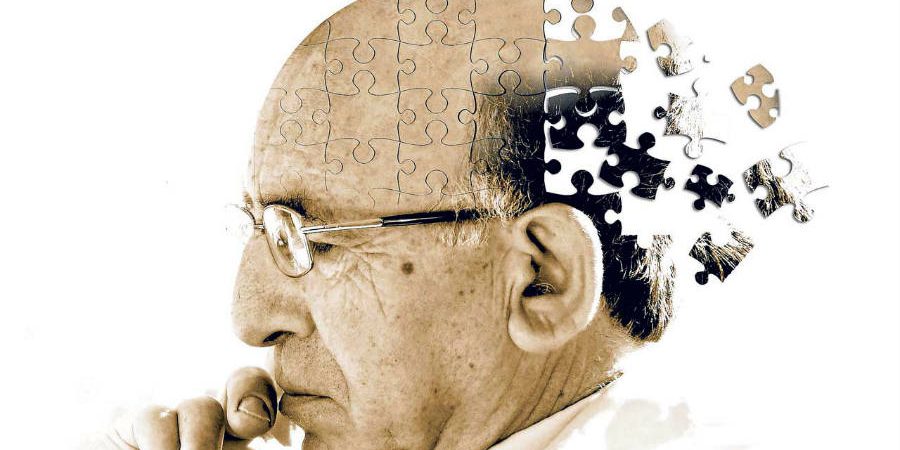An estimated 1.1 million Canadians are currently affected by dementia, both directly and indirectly. Whether you’ve experienced symptoms of dementia yourself or noticed them in a spouse, parent, friend, or grandparent, chances are you know someone who’s been affected.
Use this comprehensive guide to understand hereditary risks, identify warning signs, and learn more about the stages of Alzheimer’s disease, treatment, and care options.
Alzheimer’s research is ongoing and we’re always updating our collection of resources. Add this page to your Bookmarks and visit often for the latest information.
 Alzheimer’s Treatment, Medication, and Care Explained
Alzheimer’s Treatment, Medication, and Care Explained
Symptoms of A.D. may be treated with medication, but there is no cure. Treatments including medication and other therapies focus on improving quality of life and slowing the progression of symptoms such as memory loss, cognitive decline, and communication issues. Along with treatment, dedicated care can help to improve the quality of life in those affected…
 Alzheimer’s: Hereditary Risk & Genetic Testing
Alzheimer’s: Hereditary Risk & Genetic Testing
Early-onset Alzheimer’s affects people under the age of 65. It has a strong genetic link—most, though not all, of those diagnosed carry a gene variation. Early-onset Alzheimer’s is much rarer than late-onset Alzheimer’s, the type which affects people over the age of 65. But the genetic factors involved in the development of late-onset Alzheimer’s aren’t as clear…
 Frequently Asked Questions About Alzheimer’s Disease
Frequently Asked Questions About Alzheimer’s Disease
Do you have questions about A.D.? Perhaps you’re wondering who is likely to be affected by AD, or what the average life expectancy is following diagnosis. If you or someone you know has been diagnosed with Alzheimer’s, it’s a good idea to learn more about factors affecting life expectancy, and how to plan for the future…
Find the answers to some of the most common questions about A.D. by clicking here to read more.
 The 10 Early Warning Signs of Alzheimer’s Disease & What to Do
The 10 Early Warning Signs of Alzheimer’s Disease & What to Do
Forgetfulness and mild memory loss are often considered a normal part of aging. But when do memory problems signal something more serious? Alzheimer’s may be difficult to identify and diagnose in its early stages. But at some point, Alzheimer’s symptoms begin to interfere with everyday tasks, such as cooking, driving, budgeting…
 The Stages of Alzheimer’s Disease & Their Symptoms
The Stages of Alzheimer’s Disease & Their Symptoms
When it comes to Alzheimer’s, different people have different journeys. For some people, symptoms come on quickly. For others, first symptoms are mild and the cognitive decline is slow. The Global Deterioration Scale (GDS) is a tool used by doctors who treat dementia, including Alzheimer’s, to describe the different stages of the disease…
JoinAStudy only uses trusted resources that are part of Health On The Net Code (HONcode) as we only want to provide quality health information to professionals and the general public.
Trusted Resources:
- 7 Stages of Alzheimer’s Disease (http://www.webmd.com/alzheimers/guide/alzheimers-disease-stages)
- 10 Early Signs of Alzheimer’s Disease (http://www.webmd.com/alzheimers/guide/early-warning-signs-when-to-call-the-doctor-about-alzheimers)
- 10 Warning Signs (http://www.alzheimer.ca/en/About-dementia/Alzheimer-s-disease/10-warning-signs)
- Advice from People Living with Alzheimer’s (http://www.alzheimer.ca/en/Living-with-dementia/I-have-dementia/Shared-experiences)
- Alzheimer’s Disease (http://familydoctor.org/familydoctor/en/diseases-conditions/alzheimers-disease/early-onset-alzheimers.html)
- Alzheimer’s Disease (https://ghr.nlm.nih.gov/condition/alzheimer-disease)
- Alzheimer’s Disease Symptoms (http://www.healthline.com/health/alzheimers-disease-symptoms)
- Alzheimer’s Disease Treatment (http://www.everydayhealth.com/alzheimers-disease/guide/treatment/)
- Alzheimer’s Disease: Treatment & Care (http://www.webmd.com/alzheimers/guide/alzheimers-disease-treatment-care)
- Alzheimer’s Risk: Do You Want to Know? (http://www.webmd.com/news/breaking-news/confronting-alzheimers/20160225/alzheimers-risk?page=2)
- FAQ: What is Early-Onset Alzheimer’s Disease? (http://www.webmd.com/alzheimers/news/20160707/early-onset-alzheimers-faq)
- Life Expectancy and Long-Term Outlook for Alzheimer’s Disease (http://www.healthline.com/health/alzheimers-disease/life-expectancy#Overview1)
- Living with Early-Onset Alzheimer’s Disease (http://my.clevelandclinic.org/health/diseases_conditions/hic_Alzheimers_and_Dementia_Overview/hic_Living_With_Early-Onset_Alzheimers_Disease)
- Treatments for Alzheimer’s Disease (http://www.webmd.com/alzheimers/guide/treatment-overview)
- What are the Signs of Early-Onset Alzheimer’s Disease? (http://www.healthline.com/health/alzheimers-disease/signs-of-early-onset-alzheimers)
- What are the Stages of Alzheimer’s? (http://www.healthline.com/health-slideshow/stages-progression-alzheimers#1)
- What is Your Risk? Hereditary and Late-Onset Alzheimer’s Disease (http://www.brightfocus.org/alzheimers/article/what-your-risk-heredity-and-late-onset-alzheimers-disease)
Alzheimer’s is the leading cause of dementia in the world. Early signs and symptoms of the disease can be mild and similar to those seen in normal aging, which means Alzheimer’s might not be diagnosed right away. Learning about this disease, including hereditary risks and warning signs, can help you to identify potential symptoms. Since Alzheimer’s currently has no cure, treatment is geared towards alleviating symptoms and improving quality of life and is most effective when started during the early stages of Alzheimer’s.
Learn how the JoinAStudy community is working to help real people find real results. Click to see our active studies.



 Alzheimer’s Treatment, Medication, and Care Explained
Alzheimer’s Treatment, Medication, and Care Explained Alzheimer’s: Hereditary Risk & Genetic Testing
Alzheimer’s: Hereditary Risk & Genetic Testing The 10 Early Warning Signs of Alzheimer’s Disease & What to Do
The 10 Early Warning Signs of Alzheimer’s Disease & What to Do The Stages of Alzheimer’s Disease & Their Symptoms
The Stages of Alzheimer’s Disease & Their Symptoms